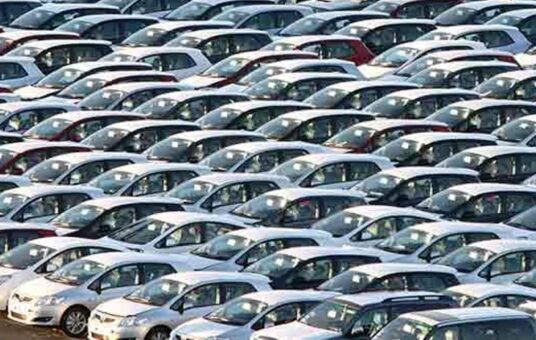The car imports in Pakistan experienced a substantial decline by 43 percent due to significant devaluation of local currency and imposition of regulatory duty.
This decline is attributed to the significant devaluation of the local currency and the imposition of regulatory duties on such imports. According to data released by the Pakistan Bureau of Statistics (PBS) on Wednesday, the import of used motor cars or completely built units (CBUs) amounted to $156.43 million during the period from July to December 2018, down from $276.7 million in the same period of the previous year.
The depreciation of the Pakistani Rupee over the past year has had a notable impact on the cost of imported goods, including used motor vehicles. The rise in the exchange rate has made imports more expensive, leading to reduced demand.
Furthermore, the imposition of regulatory duties on imported luxury items, including vehicles, has discouraged such imports. The regulatory duty is one of the measures taken by the government to curb the import of non-essential and luxury items in an effort to stabilize the country’s balance of payments.
In December 2018, the import of motor vehicles experienced a substantial decline, falling by 50.45 percent to $21.52 million, compared to $43.42 million in the same month of the previous year. This indicates a significant reduction in the number of used motor vehicles brought into the country during that period.
The decline in used motor vehicle imports is part of a broader effort to control imports, particularly of non-essential items, and to mitigate the pressure on Pakistan’s foreign exchange reserves. The government has taken measures to limit the trade deficit and reduce the reliance on imported goods.
The devaluation of the Rupee has been a contentious issue, as it affects not only imports but also the cost of living for the general public. A weaker Rupee can lead to higher inflation, impacting the purchasing power of consumers.
However, the government has maintained that these measures are necessary to address the economic challenges Pakistan faces, including a large current account deficit and pressures on foreign exchange reserves. These policies are designed to encourage local industries and reduce the country’s dependence on imported goods.
While the decline in used motor vehicle imports may be seen as a sign of the effectiveness of these measures, it also reflects a change in consumer behavior and preferences. The increased cost of imported vehicles has prompted consumers to explore other options, such as local automobile manufacturers or the used car market within Pakistan.
Additionally, the imposition of regulatory duties has made it more expensive to import luxury vehicles, which has had a direct impact on the demand for such vehicles in the country.
In conclusion, the sharp decline in the import of used motor vehicles by 43 percent during the first half of the current fiscal year can be attributed to the significant devaluation of the local currency and the imposition of regulatory duties on such imports. While these measures are aimed at addressing economic challenges and reducing the trade deficit, they have also influenced consumer behavior and preferences, leading to a change in the import landscape. The decline in used motor vehicle imports underscores the complexities of balancing economic stability with the needs and expectations of consumers.
